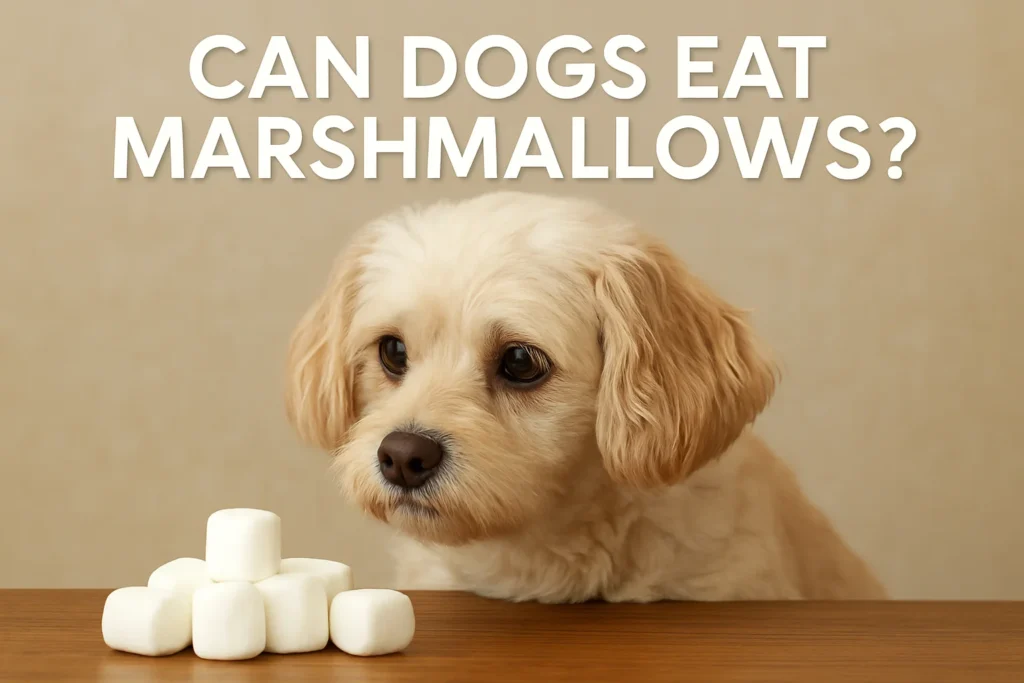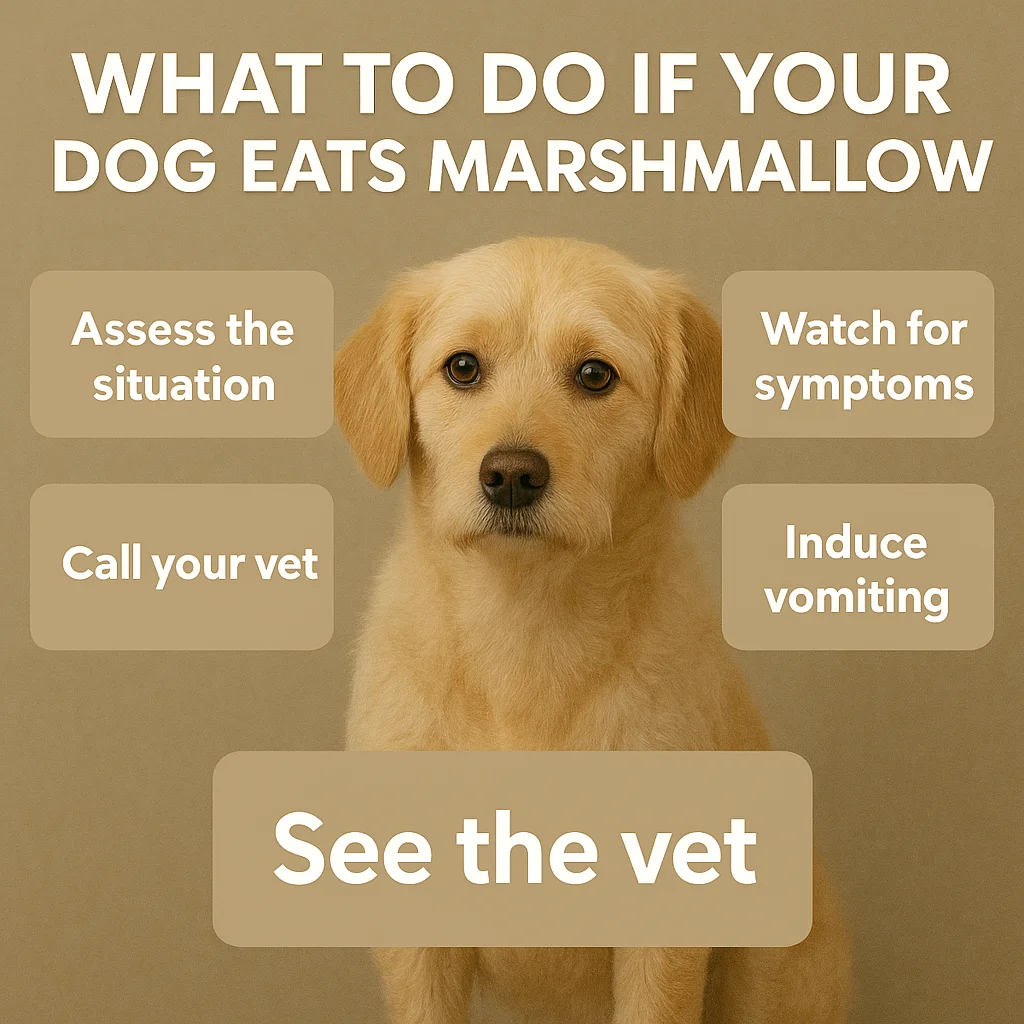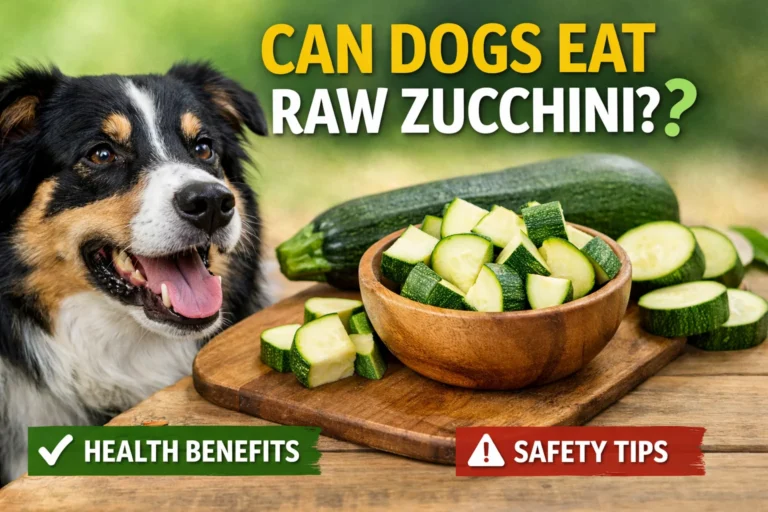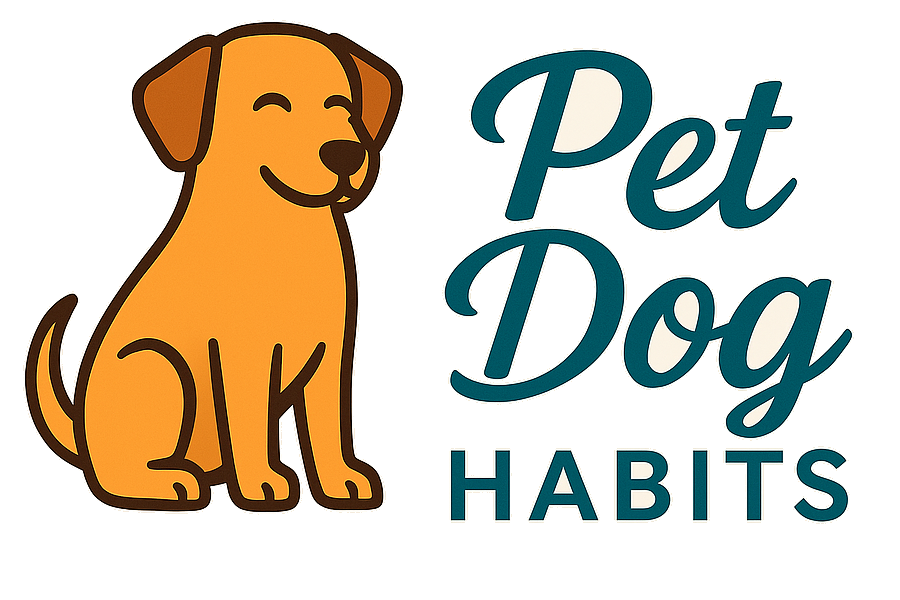Can Dogs Eat Marshmallows? Vet-Backed Guide for Dog Owners

Introduction
Dogs are curious eaters and often beg for sweet treats from their owners. If you’re wondering, “Can dogs eat marshmallows?”, the short answer is: they shouldn’t. While a plain marshmallow may not immediately poison your dog, these sugary snacks provide no nutritional value and can even cause serious health issues. Worse, many sugar-free marshmallows contain xylitol, a dangerous artificial sweetener that is extremely toxic to dogs (FDA).
In this article, you’ll discover why marshmallows aren’t safe for your pup, what to do if your dog eats them, and the best alternatives you can offer instead.
Are Marshmallows Safe for Dogs?
Marshmallows are not a safe snack for dogs. Here’s why:
- High Sugar Content – Leads to weight gain, diabetes, and dental problems (VCA Hospitals).
- Xylitol Risk – Sugar-free marshmallows often contain xylitol, which can cause seizures, liver failure, and even death in dogs. (ASPCA).
- Choking Hazard – Sticky and fluffy texture may cause choking, especially in smaller breeds.
- Empty Calories – Dogs need nutrient-rich food, while marshmallows are purely sugar and air.
Even though plain marshmallows aren’t toxic, they are still unhealthy and not recommended for dogs.
What Happens If a Dog Eats Marshmallows?
If your dog sneaks a marshmallow or two, don’t panic. A small amount of plain marshmallow is unlikely to cause immediate harm. However, eating multiple marshmallows—or any that contain xylitol—can lead to health problems such as:
- Vomiting and diarrhea
- Lethargy and weakness
- Rapid weight gain over time
- Dental issues and cavities
- Pancreatitis from too much sugar(PetMD)
- Xylitol poisoning (sudden collapse, seizures, or even death)
⚠️ Emergency Alert: If your dog ate sugar-free marshmallows, call your vet immediately. Xylitol poisoning can occur within 30 minutes. (FDA)
Can Puppies Eat Marshmallows?

Puppies should never eat marshmallows. Their digestive systems are still developing, and even small amounts of sugar can lead to stomach upset, hypoglycemia, or long-term health issues. (AKC)
Signs of Marshmallow Toxicity in Dogs
Watch for these warning signs if your dog ate marshmallows:
- Weakness or trembling
- Sudden vomiting or diarrhea
- Seizures or loss of coordination
- Excessive drooling
- Collapse or unconsciousness
👉 If you notice any of these, especially after your dog ate sugar-free marshmallows, seek veterinary care right away. (ASPCA)
What To Do If Your Dog Eats Marshmallows

Follow these steps to keep your pet safe:
- Check the packaging – Were they sugar-free or did they contain xylitol?
- Remove any leftovers – Prevent further eating.
- Monitor your dog – Look for symptoms of distress.
- Call your veterinarian – Especially if large amounts of xylitol were consumed.
- Never induce vomiting without professional guidance.
Healthy Alternatives to Marshmallows for Dogs
Instead of marshmallows, try these safe and tasty dog-friendly treats:
- Fresh fruits: Apples (no seeds), blueberries, or bananas.
- Vegetables: Carrots, cucumbers, and green beans.
- Frozen treats: Blend plain yogurt with pumpkin or banana and freeze.
- Vet-approved dog treats: Low-sugar and made with natural ingredients.
These alternatives provide nutrition and satisfy your dog’s cravings—without the risks.
FAQs About Dogs and Marshmallows
1. Can dogs eat marshmallows in small amounts?
A single plain marshmallow won’t poison your dog, but it’s still unhealthy. Best to avoid giving any.
2. Are marshmallows toxic to dogs?
Yes—if they contain xylitol. Plain ones aren’t toxic, but they are harmful due to the sugar.
3. My dog ate a bag of marshmallows. What should I do?
Call your vet immediately. Eating a large amount, especially sugar-free types, can be dangerous.
4. Can I use marshmallows to hide pills for my dog?
Not recommended. Instead, use xylitol-free peanut butter or commercial pill pockets. (VCA Hospitals).
5. What sweets are safe for dogs?
Stick to natural options like apple slices, blueberries, or vet-approved treats.
Final Thoughts
So, can dogs eat marshmallows? Technically, a plain marshmallow won’t poison most dogs, but it’s still a poor choice. With high sugar, zero nutrition, and the serious risk of xylitol, marshmallows should not be part of your dog’s diet.
For your pet’s safety and health, stick to nutritious alternatives and keep marshmallows out of reach. A healthier treat means a happier, longer life for your furry friend. 🐾
Tags
What do you think?
Related Articles

Can Dogs Eat Cottage Cheese? A Complete Guide for Pet Owners
Can dogs eat cottage cheese? Cottage cheese can be a safe, protein-rich treat for dogs when served plain and in moderation. This guide explains the

Can Dogs Eat Raw Zucchini? A Complete Guide for Dog Owners
Can dogs eat raw zucchini safely? Raw zucchini is a low-calorie, hydrating vegetable that many dogs can enjoy when served correctly. This guide explains the

Can Dogs Eat Zucchini? A Complete Nutritional Guide
Zucchini is a low-calorie vegetable often found in human diets, but is it safe for dogs? This detailed guide explains whether dogs can eat zucchini,
